Last Updated on July 28, 2021

Believe it
or not, the city of
New Orleans
is home to things even more disturbing than the hordes of drunken frat guys
that roam
Bourbon Street
at night.
New Orleans
has a rich history relating to magic and the occult that dates back to the
early 18th century, when the city was founded by the French.
It is that
precisely that history that director Iain Softley sought to mine for his latest
project, the supernatural thriller THE
SKELETON KEY. Softley, whose
previous credits include K-PAX and THE WINGS OF THE DOVE, stopped by the Ritz
Carlton in
New Orleans
to discuss his experience exploring the mysterious culture that thrives in the
swamps and bayous surrounding the Big Easy. The
Skeleton Key opens August 12th.
Iain
Softley

What
attracted you to this project?
I’ve
always loved this genre. I actually tried to get a film off the ground about
seven years ago, set in
England
. I took it around and the studios all said, “No one is ever going to go see
supernatural movies ever again.” About a year later, a couple of films called
The Sixth Sense and The Blair Witch Project came along, and they tore up that
particular script. The reason why was, I thought it was very interesting to deal
with the way the normal world comes into contact with the unknown. With the
occult, or things outside of what one would call rational, normal experience.
And so
films like Don’t Look Now, Rosemary’s Baby, Kubrick’s The Shining, even in
a way, 2001 is about the scientific world coming into contact with something
that is outside… that, you know, has some kind of dimension. And I think the
thing that distinguishes both films, because they are about where the real world
meets incidents of beliefs that challenge rational, skeptical people…part of
the architecture of those films is that you start with very naturalistic
environments. And real people. That’s why we ground the character of Caroline
in the hospital in the beginning. She’s a real person, and it’s about
character. I think these kinds of films, like The Shining and Rosemary’s Baby,
require great actors. And great actors are attracted to these films maybe more
than, say, a horror genre film.
Do
audiences expect twist endings nowadays? Did you feel you had to create that?
No. I
mean, this was the original script. This was the first draft of the script. I
was brought the script by Ehren Kruger and Daniel Bobker, his producer. We took
it to just a small number of studios, and I’d just done K-Pax with Universal,
so that was its natural home. That’s what it was. I don’t personally like
revealing what the nature of the ending is, because I think if you’re not
expecting a particular ending, the enjoyment for the audience is more. It’s
not giving anything away to say that I was attracted to elements in the story
that one would call very un-Hollywood.
The thing
that’s interesting is the actors were totally struck by that. They were
thinking, “We’re not going to be able to keep it this way, are we?” The
preview audiences were absolutely stunned that they were watching a Hollywood
movie like this, and were absolutely convinced that those elements in the story
weren’t going to the changed. Even the online sites, Ain’t It Cool News and
such, were like, “Hey, watch out. They’re going to mess with it,” you
know. I was talking to Kate about it the other day and we sort of had to pinch
ourselves – “We got away with it!” I think if there is a reason why I find
that ending appealing is it’s not a something that people get a chance to see
in a mainstream film with recognizable actors; I think that it’s more like an
independent film.
What
was it like working on location in New Orleans?
It was a
significant thing to enable me to get my idea for the way I wanted to make the
film. I always wanted to make it as a location film. Part of what appealed to me
about this is that it’s location-specific. It’s about a real place that has
a particular belief system that you don’t get anywhere else in the world. Obviously,
the accepted wisdom is that it’s more economical to shoot in a studio. You
don’t have to do the night work at night, you don’t have to haul great
equipment with cranes and lighting gear an hour and a half across country. But I
had this feeling that I wanted this film to feel very authentic and have an
almost like a documentary feel to it… not to be gothic-y in any way. I spent a
lot of time down here, and I wanted to reflect that. We couldn’t initially
find a house down here that was suitable. It was Kate’s pregnancy that
actually gave me the extra time to find the place. And when I found it, it was
like, “I have to shoot in this house.” What really helped that decision
economically was that tax benefit that the State [of Louisiana] was able to
offer us.
How
was the casting worked out?
What a
great quartet of actors. A quadrangle. Gena (Rowlands) has that fantastic
tradition of being in John Cassavetes’s body of work, and her wonderful way of
approaching and wanting to make the work her own. I was totally surprised by the
wicked sense of humor that she has, which kind of comes into the role. It adds a
real great dimension. Peter… it’s great that they’re all different and
sort of come from different traditions… Peter, I’ve always admired. I
actually tried to cast him in K-Pax, and he wasn’t available. So I’d always
been a massive admirer, and was just delighted when he agreed to do the role of
Luke.
What
made you choose Kate Hudson for the lead role?
When I met
her, I was struck by how similar she was to the character of Caroline. In fact,
she’s said herself that she thinks that this part was the closest to who she
thinks she really is. Caroline is an empowered female leading role. She’s
being forced by external events to shed off some of the frivolity of a
25-year-old. There’s a kind of sense of reality, you know, of her family, her
father… a sense of the real world. I think particularly after Kate had the
baby, she was able to bring even more of that maturity. But when I first met
her, she was talking like a 35-year-old rather than a 25-year-old. She’s very
direct, very confident about what she thinks, she very mature in the sense that
she listens to other people. She engages with other people, is a strong
character, and has a very serious side.
How
do you persuade an actor of John Hurt’s stature to take on an essentially
non-speaking role?
This is
the question I like answering most: John Hurt’s agent pursued me for the role.
It seemed to me self-evident, on three or four levels really. One, if you’re
an actor of John’s caliber, the challenge of playing the multi-dimensional
aspect of Ben, of being able to be skillful enough to communicate that with just
your eyes. The eyes, of course, are the most expressive tool in an actor’s
repertoire when it comes to film. I can’t remember reading a review of an
actor’s in any film, ever, saying what an amazing voice they have. I’ve read
reviews where they’ve said the voice is over the top.
The voice
really is a significant tool for a theater actor, which John is. In terms of his
film career, it’s really his eyes. I think he’s elevated the role and
obviously he saw the potential for that. I completely concur in terms of John
Hurt’s stature, but he’s maybe a little bit unrecognized in Hollywood. The
Elephant Man was, I guess, an independent film, but he hasn’t really been
embraced in the way that say Anthony Hopkins has, or fellow British actors. Alan
Rickman, for example, has a sort of theater background. I think John is excited
about film and he thought this was a great opportunity for him and he took it
with both hands and knocked it out of the park.
The
movie has a lot of Hoodoo and Voodoo — did anything weird happen on set?
Yeah, the
crew said that whenever we did those scenes the cameras kept breaking. This is
what we believed. My DVD crew…this friend of mine is a very unexcitable,
rather dour Englishman, and he said, “Something very strange happened in that
house while I was filming yesterday.” He was in there on his own in the actual
house by the bayou, and he was walking up towards the attic to get some shots
for the DVD, and he said, “I heard somebody following me, and I turned around
but there was actually nobody there.” He carried on, and he heard footsteps
again, but when he turned around they’d stop. I’m glad that was him, and not
me. (laughs)
Does
being British give you a different perspective on the issue?
Maybe. My
knee-jerk reaction is to say that maybe because it was slightly more documentary
and kind of lower-key in terms of glamour, but there are many American directors
who have that sort of eye. I think there is something about being an outsider,
particularly in this film… Kate herself goes into a scenario that she finds
unfamiliar. You maybe pick up on things that you quickly kind of see as
distinctive that maybe somebody who’s more familiar with that world doesn’t.
I had a connection on another level, which is the music. When I first flew in,
it was a strange feeling of going somewhere that I’d always felt I had a
familiarity with on some level. I’ve been listening to music that was either
from New Orleans or influenced by here, all my life. The references in the songs
are to the city, the bayou, and you know, having a competition with somebody
using magic. I mean, how many songs do you know that mention New Orleans in the
title?
How
familiar were you with Hoodoo before taking this movie on?
Not at
all, but in retrospect I went back and listened to all those songs and realized
there were all these references. I kind of thought, at first, that Hoodoo and
Voodoo were sort of similar and that one was another word for the other, or sort
of an alternative. Then I was aware in common parlance of Hoodoo-ing.
It just means you’re kind of working spells. I was reading To Kill A
Mockingbird with my daughter the other week, and the character Boo Radley refers
to them finding these effigies and coins in the trunk of a tree. That’s all
authentic Hoodoo ritual. And one of the kids turns to him and says, “I don’t
believe in any of that Hoodoo.” So it’s the kind of stuff I’d heard, but
never actually specifically worked out what it was.
What
are you own beliefs when it comes to the supernatural?
I think
I’m somebody who isn’t aware of the degree to which I do believe. I would
always say that I’m a rationalist and a skeptic, but one of the reasons I
realized I’m so interested in this music is that it’s kind of the appeal of
the occult, in a broad sense, of what’s hidden, what’s kind of… and sort
of the spirituality. The idea of some kind of magical, shamanistic thing. I
mean, you know, that’s how music has always worked.
What
are your plans for DVD?
The DVD is
going to have a significant deleted scene, when Caroline and Jill go to a
spiritualist church in New Orleans…and they get drawn in. It’s a
spiritualist church that has a kind of dimension to it that’s very local to
New Orleans; which is the Black Hawk Cult. The Native American spirit of a black
hawk is incorporated into an essentially Christian ceremony. And that’s a
great scene, actually. It was kind of transient in the movie, but as a
standalone scene it’s fabulous. There’s a lot of DVD extras in the form of
documentary. I got a documentary crew together with a cameraman that I worked
with before, and a friend of mine who came down from London. They actually lived
with us here in New Orleans. There’s a bunch of stuff on Hoodoo, there’s a
documentary where we actually film the Conjure of Sacrifice being recorded down
here, which is fabulous. We see the candles being lit by Hoodoo practitioners
who were actually doing that song, and spells are being chanted, and it’s very
cool.
Will
there be an unrated cut?
There
isn’t really anything unrated here, because it’s not a horror movie as such
— there are no entrails on the wall. [laughs] What’s scary is what you
don’t see, and it’s about your imagination. It’s about the occult in the
real sense – in other words, the hidden.


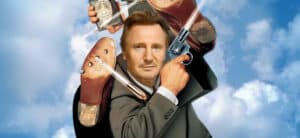
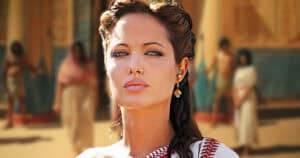
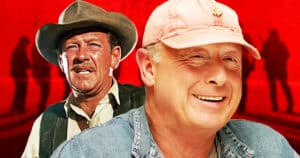
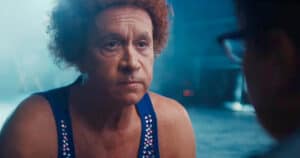
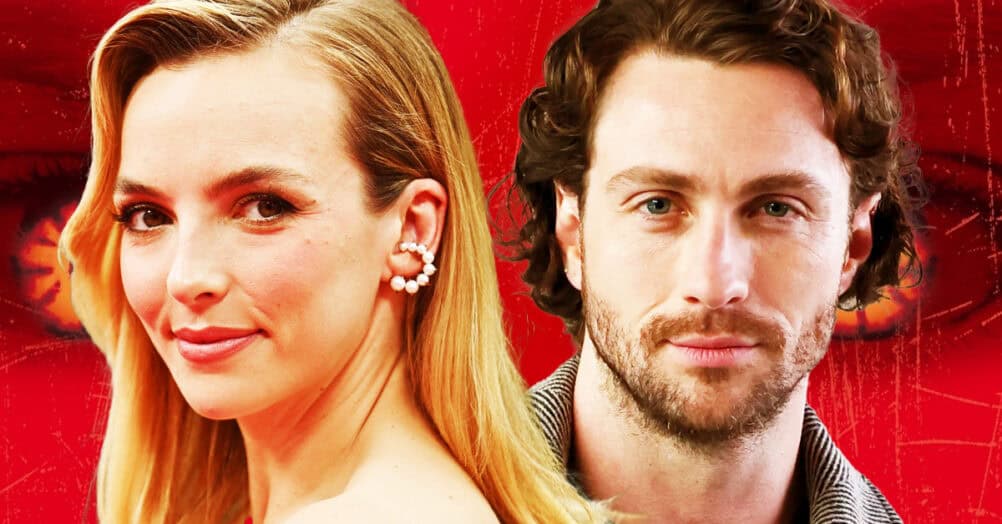
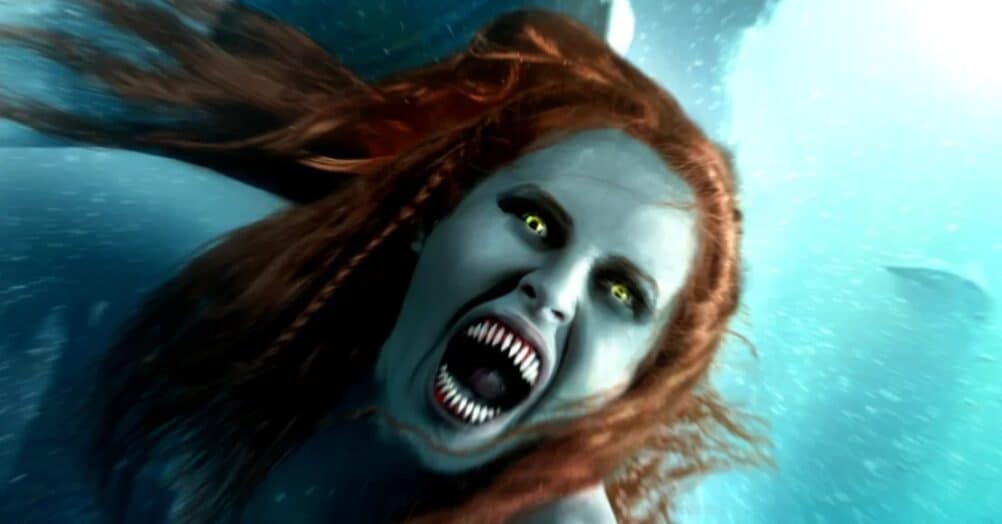
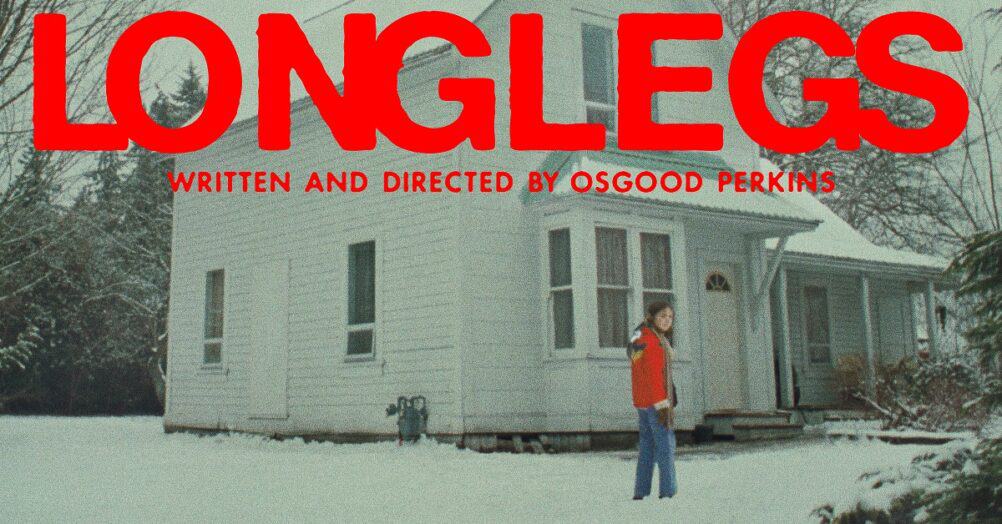
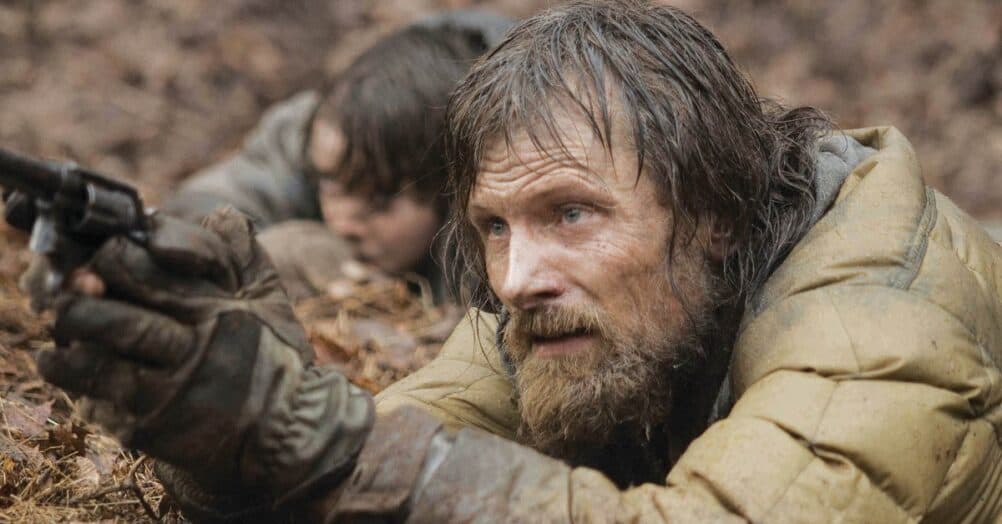
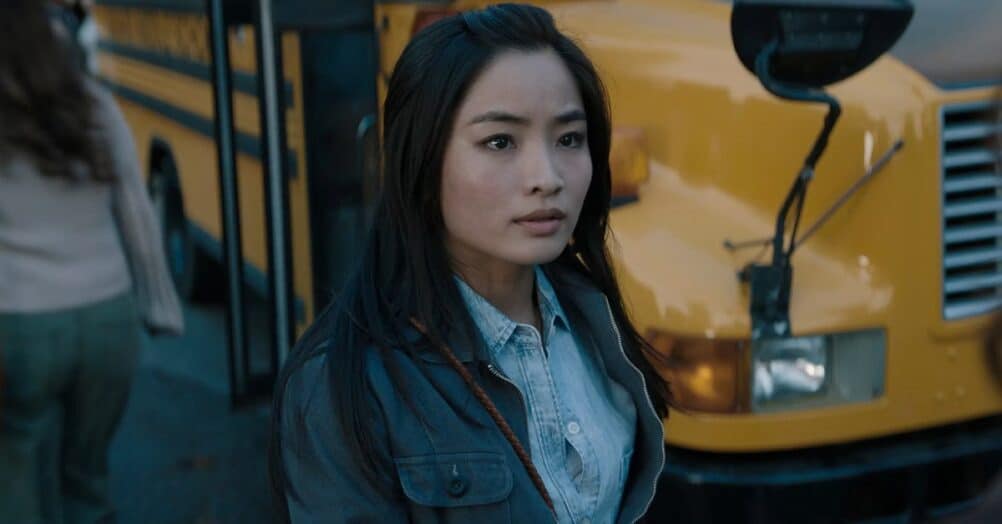
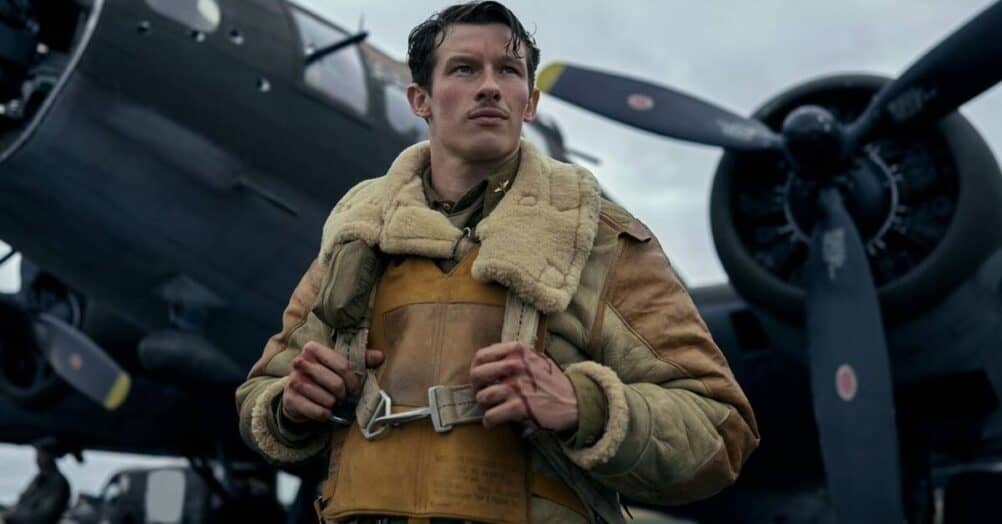
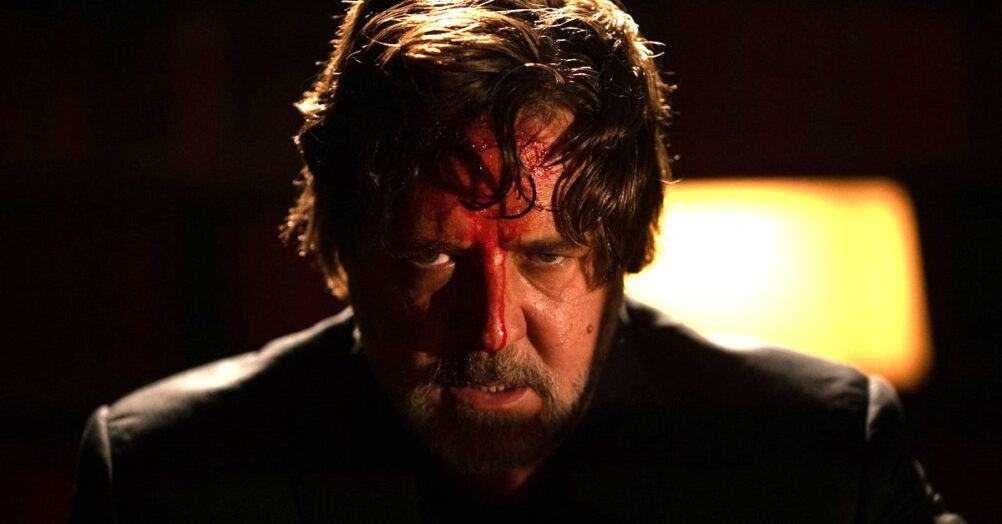
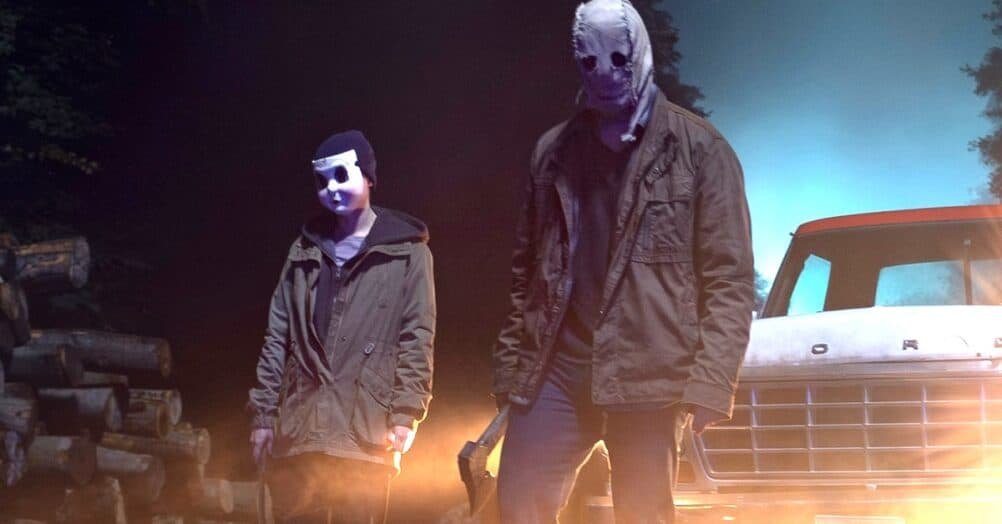

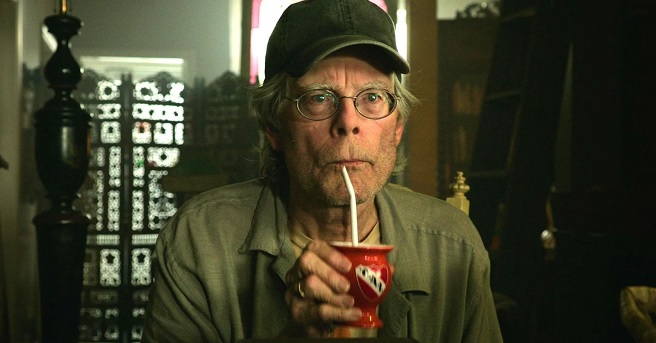
Follow the JOBLO MOVIE NETWORK
Follow us on YOUTUBE
Follow ARROW IN THE HEAD
Follow AITH on YOUTUBE